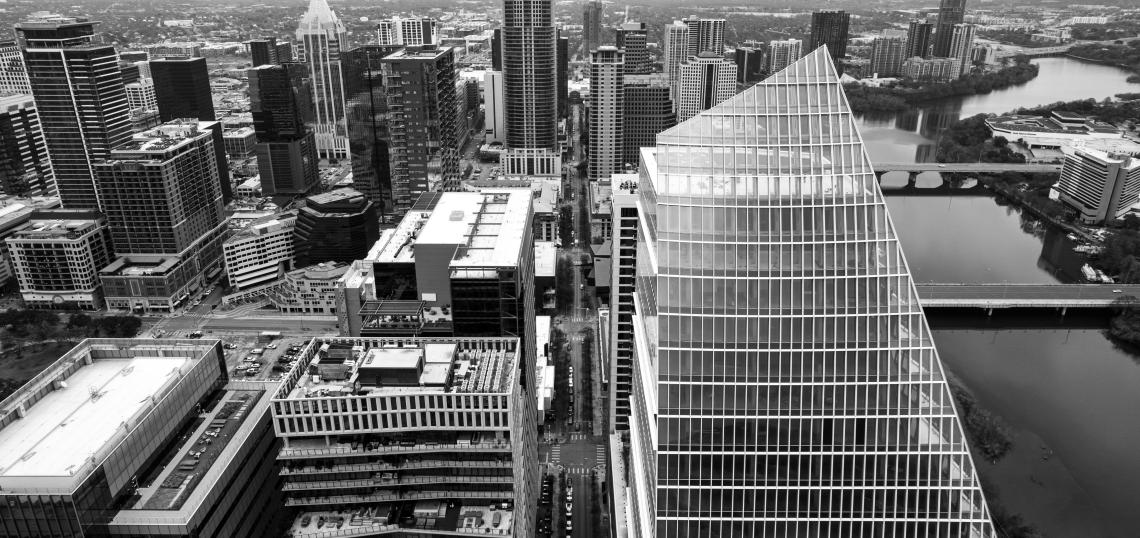Based on its ability to evolve, innovate, and adapt to modern challenges — a quality that drives property values and investment opportunities —Austin one of the big U.S. metros ready for the future, a new study reports. the future cities.
Residential and commercial real estate search site Point2 analysts recently crunched the numbers on the 100 largest cities in the U.S. to see which are the most "future-ready," using 30 key metrics across five categories: business and technology, internet connectivity; environment and sustainability; transit and mobility; and economy and demographics.
Here's a snapshot of what the report found for Texas:
- Austin, Dallas, and Houston are the state’s most future-ready cities, ranking 5th, 15th and 20th among the 100 largest in the U.S. The cities score particularly high in business & technology, with Austin having one of the highest numbers of startups (1,043), and Houston boasting the second highest number of invention patents (over 27,000);
- The construction sector in Texas is thriving and shows no signs of slowing down. Houston leads the way with 35,800 building permits issued so far this year, followed by Dallas with over 33,700;
- In Texas, Plano is the best-performing in economy & demographics: The city has the 10th highest annual median income ($95,002);
- Lubbock and Corpus Christi have the lowest average commute times (16 and 19 minutes, respectively) not just in Texas, but also nationally. Meanwhile, Fort Worth ranks 4th in number of enplanements (more than 35 million) among the 100 largest U.S. cities.
The study finds most future-ready large U.S. city to be Seattle, which ranks high when by metrics such as the number of startups and invention patents, the annual median income, the influx of a population with bachelor’s degrees, and bikeability.
Second on the list is Silicon Valley's San Jose, California, followed by Denver, San Diego, and Austin.






